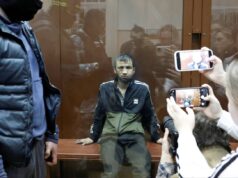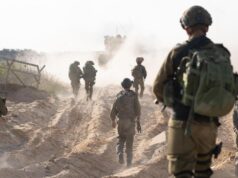The New York Police Department (NYPD) has been subject to harsh criticism for doing surveillance on certain Muslim organizations and neighborhoods in an effort to stay ahead of people plotting terrorism in New York. Typical is the Huffington Post blogger who wanted “tough” police surveillance, but not, mind you, of actual people or actual places that people gather; just kind of “watching” public places to see if anything develops in front of them. “The NYPD should monitor websites and publications… have officers and surveillance cameras watching in public places… radiological devices and other detection devices on our subways and bridges. And when there is a real, specific lead that suggests criminal behavior, they should follow up swiftly to investigate.”
However, the terror threat (it is not “criminal behavior”) morphs, and intrusive police work is necessary precisely because you don’t always get a “real specific lead” before the deed is done. Italian police, for example, monitor not only websites and publications, but also individual Internet usage in ways American police do not, and yesterday it paid off.
There is more than one lesson to be learned from the story of Mohamed Jarmoune.
Brescia (Italy) police arrested the 20-year-old Moroccan man for plotting to bomb the synagogue in Milan. He was identified through his Internet use, including his six Facebook pages and his use of Google Maps to zoom in on areas around the synagogue “in a way that suggested he was casing the security, not browsing casually,” according to Police Chief Lucio Carluccio in an Associated Press story. “There were a series of clicks to zoom on a police car, and to zoom on the anti-sabotage columns placed outside the synagogue.”
According to an ANSA Italian language story, Jarmoune was a steelworker who had no visible problem integrating into Italian life. “From what we learned, he had never attended the mosque, but was still fascinated by Islamic ideology and was running a Facebook group with a woman living in London,” Carluccio said. The AP story notes that the suspect did not associate with Islamic fundamentalists known to Italian authorities, and told users of his Facebook pages not to post religious material. “He paid a lot of attention to his behavior to avoid anyone becoming suspicious,” Carluccio said.
From his apartment, however, police confiscated Nazi flags, and USB drives with detailed descriptions of how to build a car bomb and the quantities of chemicals needed to make explosives. The fact that there were no overt indications of radicalism, Carluccio added, is typical of “new jihadists.”
What are, or who are, “new jihadists”?
(Translation from the Italian not exact) “We are not confronted with a criminal organization in the traditional sense. There are fewer physically active jihadist cells; at the same time, however, (information) comes with great speed and ease. Groups of young men are isolated but remain in touch thanks to the relationships that can be maintained via the web,” said Carluccio.
“Part of the new media strategy of al-Qaida, adopted in the last decade is one in which they try to indoctrinate young Muslims living in Western countries,” said Vincenzo Di Peso of the terrorism prevention office. “The message they are sent via Web sites and ad hoc publications is to ‘take action how and when you can.’ (Italy faces) “a veritable army of individual potential jihadists who train themselves via the web. The threat is scattered and therefore more difficult to observe — the individuals are autonomous, self-promoting.”
There is some information missing from the story — how did the Italian police “find” Jarmoune and on what legal basis did they monitor his Internet habits? How many others do they follow? How does Italian law differ from American law, and how are they the same? The story of Mohamed Jarmoune may, in fact, indicate that the intrusion of NYPD surveillance into mosques and student organizations will become moot as potential terrorists take pains to avoid suspicion.
But the story certainly also indicates that NYPD and others will have to continue to find new ways to stop terrorists before they strike. Had the Italian police been limited to monitoring public places and reading open publications, they would no doubt have been too late to rescue the Milan synagogue — and maybe its congregation.





